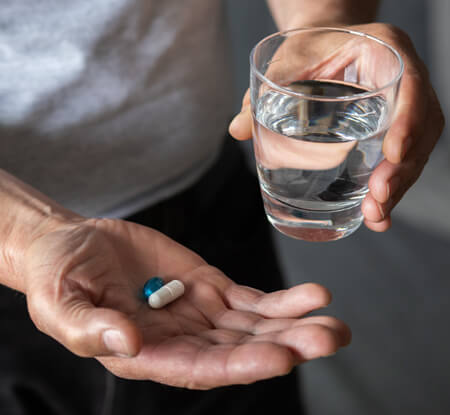This question is asked by every fifth male patient: do antibiotics cause erectile dysfunction or even cause complete impotence? Indeed, it would feel extremely unfair to cure, for example, pneumonia — and lose the opportunity to provide sexual pleasure to a loved one.

Many men in such a situation will prefer shamanic conspiracies or psychics, just not to lose even a small fraction of their potency. But are these fears justified? Do antibiotics directly or indirectly cause impotence?
Before giving an exhaustive answer to this question, it is necessary to briefly explain how drugs of this group generally affect the human body.
How Antibiotics Work
All existing antibiotics are divided into two main groups:
- Bactericidal: killing pathogenic bacteria.
- Bacteriostatic: preventing the reproduction of pathogenic microorganisms.
The desired therapeutic effect is achieved in various ways: by suppressing the synthesis of proteins inside the bacterial cell, inhibiting the synthesis of the bacterial cell wall, disturbance of the synthesis of nucleic acids in the bacterial cell — the list goes on.
It is easy to notice that the action of antibacterial drugs is selective and is directed exclusively at pathogenic microorganisms. The systems involved in the onset of erection, which are blood circulation, blood vessels, hormonal balance, are not directly affected by antibiotics.
Erectile Dysfunction as a Side Effect of Taking Antibiotics
Sure, antibiotics do not have a direct effect on one’s sexual capabilities, but what about erectile dysfunction as a side effect of a course of antibacterial therapy?
Firstly, it should be clarified right away that the weakening or complete absence of an erection during treatment is an absolutely normal phenomenon. After all, a person is sick, and sometimes he is quite seriously ill. It would be strange to expect him to demonstrate his former sexual capabilities before the onset of full recovery.
Secondly, most of the side effects of antibiotic treatment are explained by intoxication of the body caused by the massive death of pathogens and the drug’s own toxicity. Most often, such intoxication is insignificant, manifesting itself in the form of allergies or diarrhea, which are quickly and easily cured.
But sometimes, especially in hypersensitive or seriously ill patients, intoxication causes damage to vital organs — first of all, kidneys and liver. Such patients require special restorative treatment, and the absence of a full-fledged erection for the entire period is also considered as fairly normal.
As they recover, the affected body functions, including erectile function, are fully restored.
Lack of Potency After Finishing Treatment
The answer to the question can antibiotics cause erectile dysfunction will not be complete if the last possible problem is overlooked: the course of antibacterial therapy has been completed, and potency disorders still persist.
Such a situation can have three main reasons:
- Rehabilitation therapy has not been completed. This is what most men do — as soon as the symptoms of the disease have gone away, they abandon systemic medication and return to work. The lack of a normal erection in this case can be explained rather easily: the body is still too weak to perform such an activity.
- The Treatment Was Not Complete. In many cases, antibiotics are only one of the stages of long-term therapy, until the completion of which erectile dysfunction may persist. This can be said about bacterial prostatitis: the acute phase of this disease is removed with antibiotics followed by prolonged conservative treatment.
- Medical Error. Unfortunately, this probability also cannot be excluded — especially if the patient was prescribed a complex combination of antibacterial drugs. In this case, both the treatment itself and its results were most likely evaluated incorrectly, as a result of which the patient either did not achieve a final recovery, or still suffers from side effects.
Summing Up
Summarizing all of the above, we can give the following answer to the initial question: antibiotics do not affect erectile function and cannot cause impotence.
If, after a course of treatment with antibacterial drugs, a man has potency disorders, then it is necessary to look for the cause not in antibiotics, but in the features of the treatment of the disease for which they were prescribed.